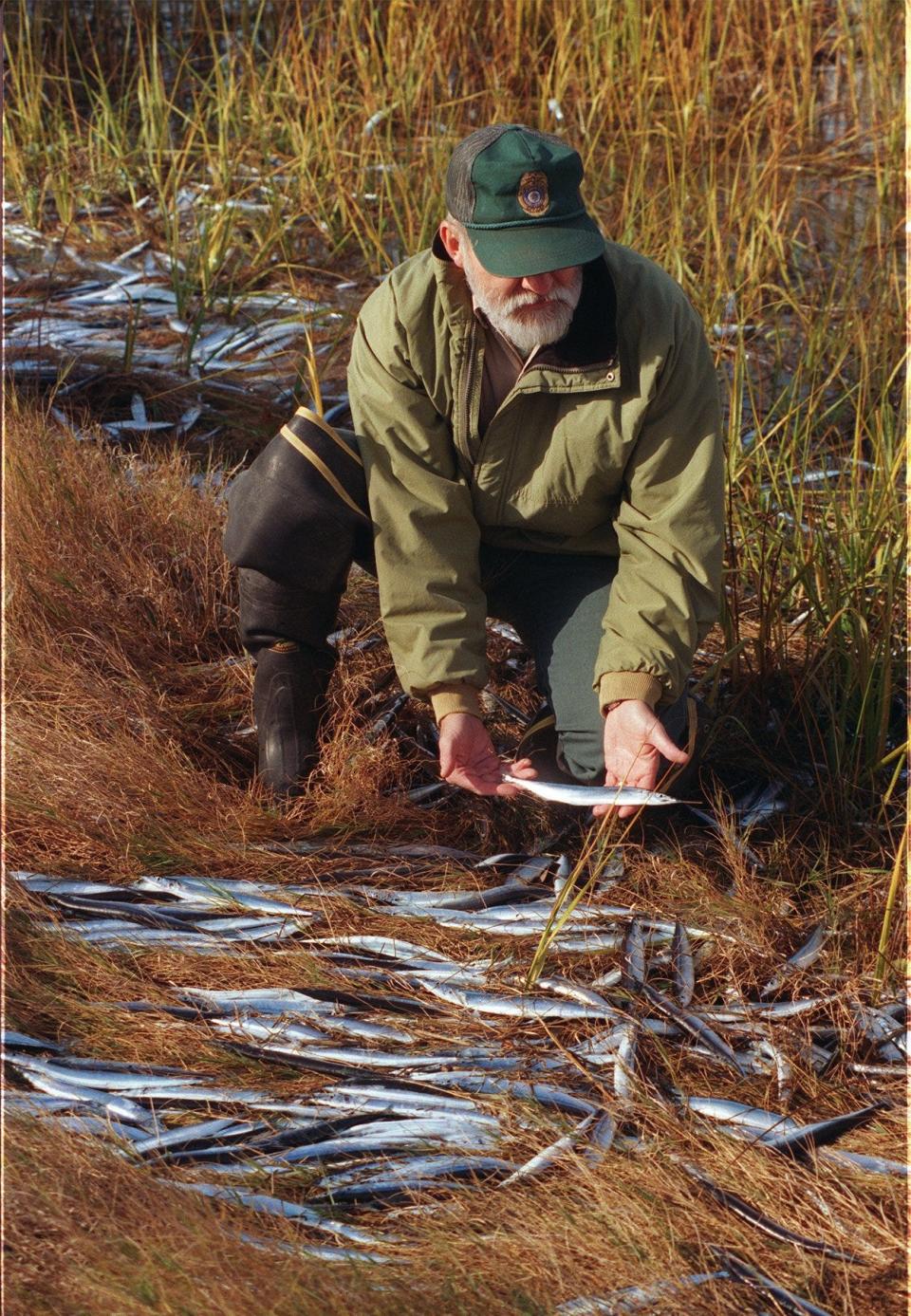'When they come in, they come in hard': Thousands of fish wash up on Cape Cod beaches
CAPE COD, Mass. – A "saury" situation has been playing out on Cape Cod Bay in Massachusetts in recent days.
Thousands of small, slender fish have been found on bayside strands from Wellfleet to Barnstable, according to Owen Nichols, director of marine fisheries research at the Center for Coastal Studies.
Known as Atlantic saury, the fish travel in large schools and are found in offshore waters from Newfoundland, Canada, to North Carolina.
Nichols said sauries on Cape beaches are a regular phenomenon, recalling similar episodes in 2018, 2016 and 1998. He also pointed to an article in an 1870 edition of the American Naturalist that described similar saury strandings with thousands of fish on the shore.
"When they come in, they come in hard," Nichols said.
Rogue wave: They were rocked by blast and rogue wave during Antarctic cruise. They share their story.

According to the National Marine Fisheries Service, predators that nosh on them include sharks, Atlantic cod, dolphins and birds.

The sad end for the sauries is a boon for other Cape animals, especially gulls and other birds that have lucked into a giant buffet.
"Anything that eats fish is going to be pretty happy about it," said Nichols, who added that he had heard a report of a saury-eating fox patrolling the wrack line.
'Unusual crime': Mysterious Idaho student killings compounded by police contradictions, experts say
According to the National Marine Fisheries Service, "there is no directed fishery for the species in the western Atlantic, but Atlantic saury is an important food fish in other parts of the world."
Factors that lead to a mass saury stranding might include prevailing winds, big tides, cooling water temperatures and the presence of predators, Nichols said. Plus, "the shape of the cape is essentially a giant natural fish trap."
Visitors may soon be able to spot saury skeletons on bay beach walks. Nichols said that because of certain proteins in their blood, sauries' bones have a bluish-green tint.
Contact Eric Williams at ewilliams@capecodonline.com. Follow him on Twitter: @capecast.
This article originally appeared on Cape Cod Times: Saury fish wash up on Cape Cod, Massachusetts, beaches

